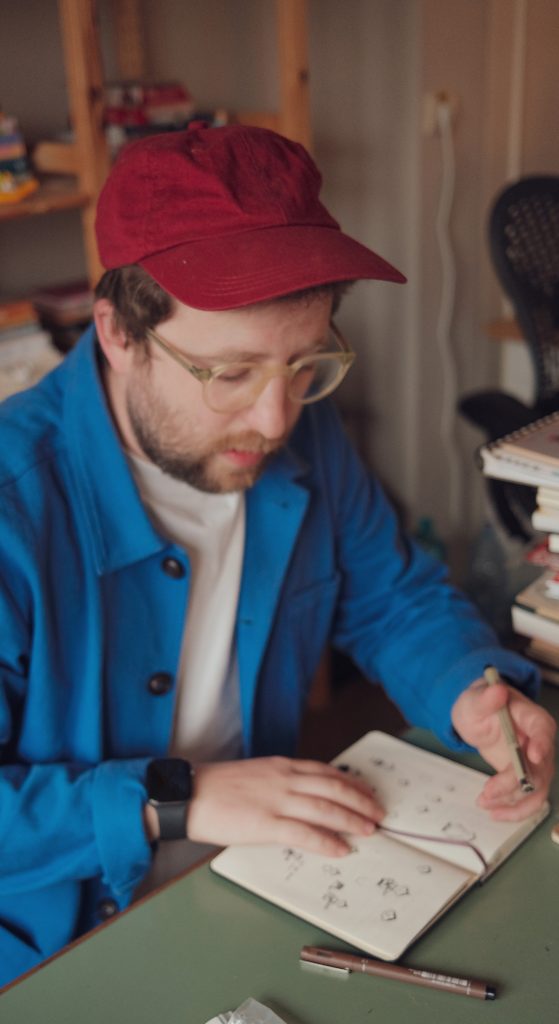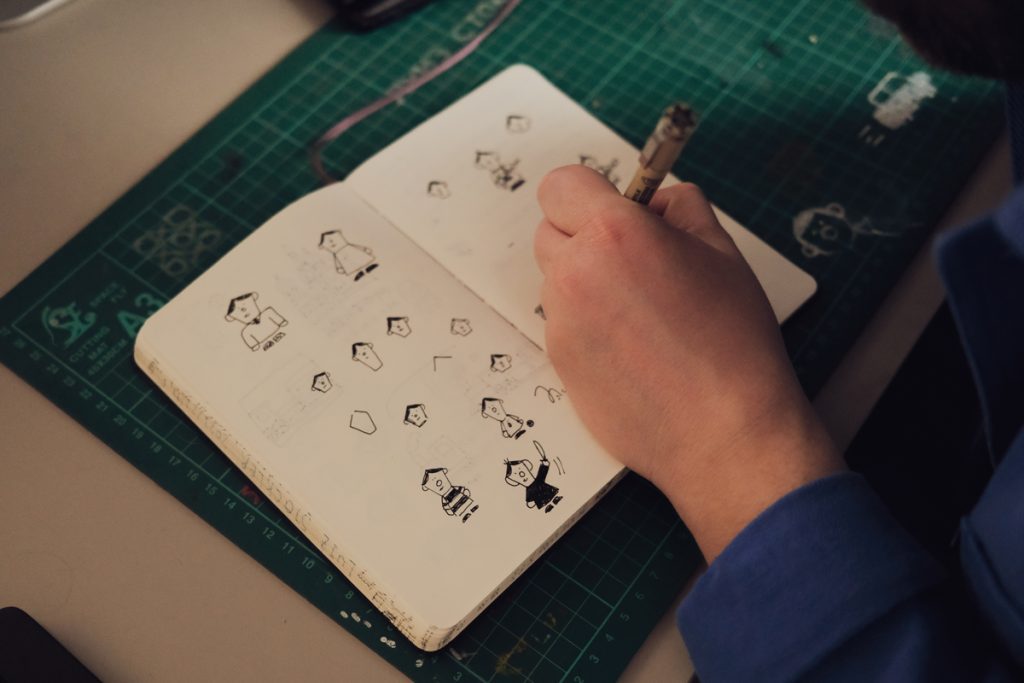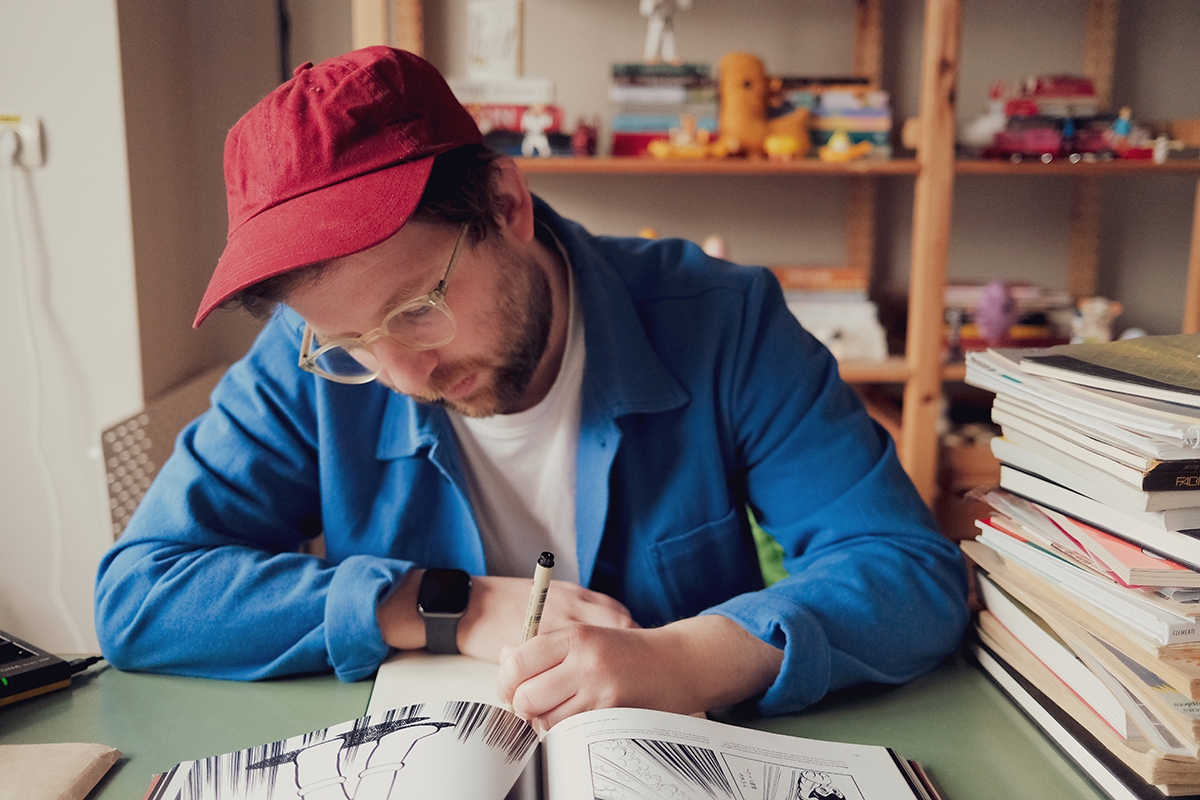Meet Our Director: Luiz Stockler
What inspired you to get into animation, and how did you get started in the industry?
I used to draw quite a lot when I was little – mostly anthropomorphic animals playing football. I’d draw every creature from the animal kingdom so I’d have my own animal premier league. Around the same time, I watched Mrs Doubtfire in the cinema – At the start, we find out Robin Williams’ character is a voice actor for animation – I couldn’t believe this was an actual job, so I wanted to do that. My grandfather explained that I could also make my own characters move. This was before the internet, so I only knew how you made animation a few years later, but that was the initial planting of the seed.
I always liked storytelling, so later on, I went to 6th form college and did a course in multimedia which consisted of photography, graphic design and filmmaking. There was a short introduction to animation where we did a frame-by-frame exercise on paper – seeing drawings move was magical (I know it’s cheesy, but that’s the only way I can really describe it).
When it came to applying for uni, I originally wanted to make live-action films, but it involved lots of people, money and too many other factors to rely on, like the weather. Animation allowed me to tell stories in a much more immediate way, and I could do it on my own in my bedroom.
After my BA, I did an MA at the Royal College of Art and made a couple of films which did the rounds at festivals, and through that, I was fortunate and got repped by a company and started directing work soon after. I often jumped from directing to animating on other people’s projects which helped me learn about how others worked in the industry, which was very different to how we worked at uni – in pyjamas in our bedrooms and a mess of badly named files.

What do you think is the most crucial quality for a director to have, and how do you cultivate that quality in yourself?
It’s quite difficult to pinpoint one thing, but there’s definitely a combination of a few qualities that I think are important – adaptability, decision making and people skills.
I try to have a wide variety of interests and hobbies, and I think that helps with jumping from project to project. Finding yourself in different situations is the same as being on different jobs – you can apply thought processes and problem-solving methods to help you develop, learn and create stuff. I tend to naturally associate things I’ve learnt doing a totally different activity to how I work, and I find it super helpful.
Knowing when to make a decision is key to moving forward during a project. Being decisive helps keep the project on track. Of course, we all doubt ourselves, and it’s important to also get feedback from others but ultimately as a director you have to make decisions which is something that you naturally develop over time with experience.
Lastly, people skills are fundamental, especially if you’re working within a team or dealing directly with a client. Knowing how to manage each individual and make sure that they’re happy working on the project is really helpful. If you can communicate what you need from them whilst also knowing they’re happy, then you’ll get the best possible results from everyone, including yourself. I think this can sometimes be hard for animators as we naturally tend to be quite introverted, but just knowing how to communicate/listen to what you/they need can make a huge difference.

How do you keep yourself inspired and motivated creatively?
I always try to have ideas and personal projects going on in the background, and whenever I have a bit of free time, I try to work on those. I also visit galleries and museums regularly and look at other types of art like architecture, photography and graphic design. I like to travel, especially to places off the beaten path, and experience different cultures. Consuming different things outside of animation really helps to get me out of a creative rut and get inspired to push things in new and different directions.
How do you balance the demands of a commercial project with your own artistic integrity and vision?
I think part of my artistic integrity is caring about my work, even if the project sometimes doesn’t always align with my interests or taste. If I put my energy into making the best possible work with the limitations/restrictions imposed by the client, then I can hopefully still have something at the end that I’m proud of.
Can you talk about any particular animation or film directors who have been influential or inspiring to you and what you've learned from their work?
Don Hertzfeldt’s It’s Such a Beautiful Day trilogy was a huge inspiration when I was a student. He taught me that you could do so much with very little. His drawings and animation were so simple yet he told a story that was super complex and deep and kept me engaged throughout. I also love the work of Adam Elliot, especially his early short films – Uncle and Cousin. Similar to Don Hertzfeldt, he told personal stories using very simple and economical animation, letting the narration drive the film.
I think the most important thing I learnt from these two filmmakers is that if you have a good story, you can really capture an audience. Technique, software, equipment etc…is all secondary. Animation is just another tool to tell stories.
"realising that it's not about you; it's about collaborating in helping the client solve a problem or communicate a message, and compromise is a part of that."
Can you speak to any specific themes or motifs that you frequently explore in your work, and what draws you to those ideas?
A lot of my work is based on personal experiences, daily observations, humour and my interests. I try to keep it honest and apply the things I know into my work – That way I think it’s much easier for me to stay engaged in what I’m making. I can find it quite challenging if I don’t connect with it on an emotional level.
I tend to explore themes around belonging – I think because I’ve grown up between two cultures, I’ve never felt fully part of one.
Sports play a big part in my work, too, mostly football and skateboarding – I think those are two things that helped me have a sense of belonging growing up and allowed me to express myself – you have your own group of friends/communities that you feel a strong sense of being a part of and they’re also creative activities. Everyone has a different style of doing things, and I always liked how they’re both individually expressive in that way.
What advice would you give to someone who is just starting out as an animation director, based on your own experiences and lessons learned?
The main thing for me is not to take feedback personally. I see a lot of people starting out who, up until that point, have been used to working on their own stuff and when they start getting feedback from clients which doesn’t always align with their vision, they can get frustrated and discouraged thinking that the client doesn’t like what they’ve done or that the client doesn’t know what they’re talking about. So realising that it’s not about you; it’s about collaborating in helping the client solve a problem or communicate a message, and compromise is a part of that. It also helps to learn to detach yourself a bit from the work. That way you can stay grounded and focus on making the best possible work whilst being flexible to the clients’ needs and demands.
A special mention would be to work with a producer and read contracts properly – it will save you time and headaches.
Grab a cuppa and find out more about Luiz here

